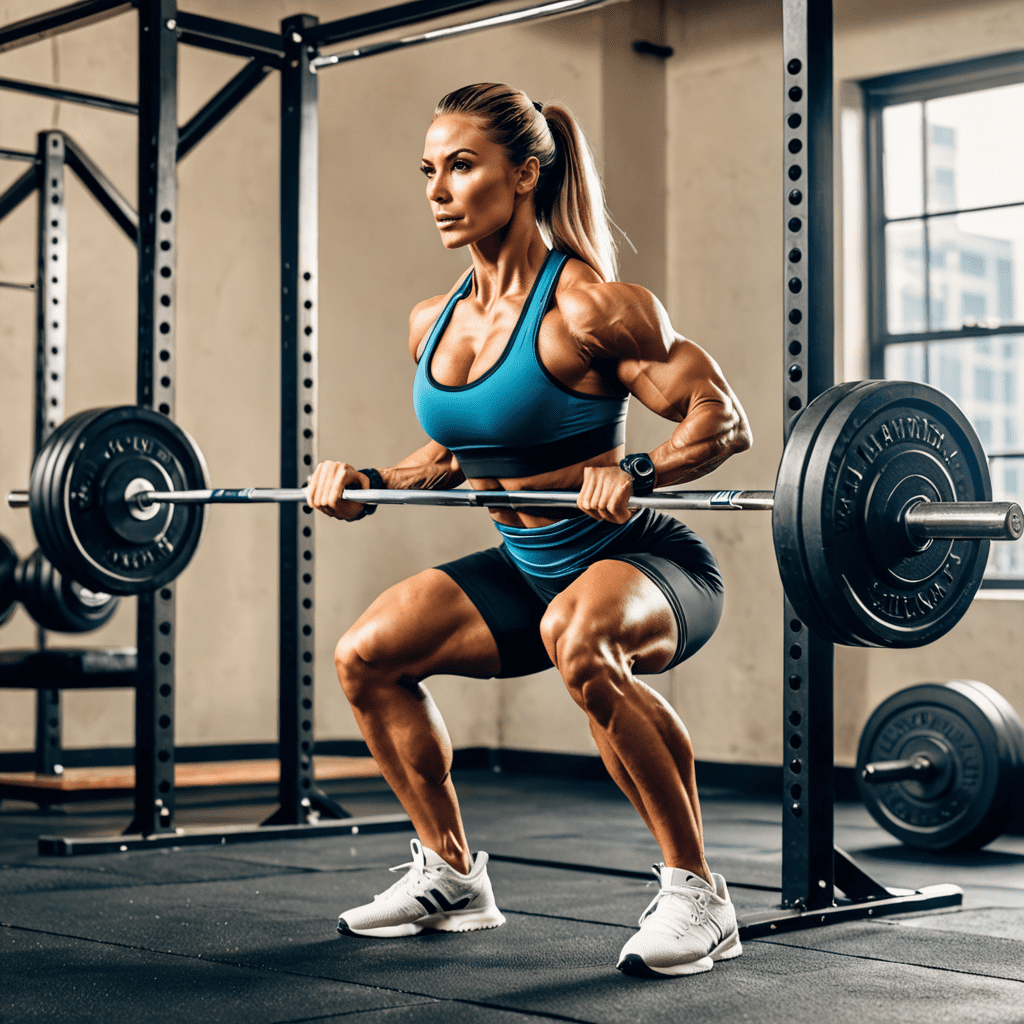
Why Do My Hips Hurt When I Squat
Squatting is a fundamental exercise in many fitness routines, but for some individuals, it can be an uncomfortable experience due to hip pain. Understanding the reasons behind this discomfort is key to addressing the issue and finding ways to continue squatting without pain. In this article, we will explore several possible causes of hip pain during squats and provide insights on how to alleviate and prevent it.
1. Poor Squat Form and Technique
One of the most common reasons for hip pain during squats is improper form and technique. When performing a squat, it is crucial to maintain proper alignment of the spine, hips, and knees. Failure to do so can put excessive strain on the hip joint, leading to discomfort and potential injury.
To address this issue, start by focusing on proper squat form. Ensure that your feet are shoulder-width apart, your knees are tracking over your toes, and your hips are pushed back as you lower into the squat. Engaging your core muscles and maintaining a neutral spine throughout the movement can also help alleviate hip pain.
2. Weak Hip Muscles
Weak hip muscles can contribute to hip pain during squats, as they are responsible for stabilizing the hip joint. If these muscles are underdeveloped or not activated properly, they can cause excess stress on the joint, leading to pain and discomfort.
To strengthen your hip muscles, incorporate exercises that target the glutes, hips, and quadriceps into your workout routine. Some effective exercises include hip thrusts, glute bridges, lateral leg raises, and squats with resistance bands. Gradually increasing the intensity and resistance of these exercises can help improve hip muscle strength and alleviate pain during squats.
3. Lack of Mobility and Flexibility
Limited mobility and flexibility in the hips can also contribute to hip pain during squats. When the hip joint lacks mobility, the surrounding muscles and soft tissues may compensate, resulting in discomfort and pain.
Incorporating dynamic warm-up exercises that focus on hip mobility, such as leg swings and hip circles, can help improve the range of motion in your hips. Additionally, incorporating exercises that target hip flexibility, such as pigeon pose and butterfly stretches, can help alleviate hip pain during squats.
4. Hip Impingement
Hip impingement, also known as femoroacetabular impingement (FAI), is a condition where there is abnormal contact between the hip socket and the femur (thigh bone). This can cause pain and limited range of motion, particularly during activities that involve deep hip flexion, such as squats.
If you suspect hip impingement as the cause of your hip pain during squats, it is essential to consult with a healthcare professional. They can assess your condition and may recommend treatments such as physical therapy, modifications to your squat form, or in severe cases, surgery.
5. Previous Injuries or Trauma
Past injuries or trauma to the hip joint can also contribute to hip pain during squats. If you have a history of hip injuries or surgeries, it is crucial to approach squatting with caution and listen to your body’s limitations.
Consider consulting with a physical therapist or a healthcare professional specializing in sports medicine. They can assess your specific condition, provide guidance on modifying your squatting technique, and recommend exercises or treatments to alleviate pain and prevent further injury.
6. Overtraining or Overloading
Overtraining or overloading the muscles and joints can lead to hip pain during squats. Pushing yourself too hard, too quickly, without allowing for adequate rest and recovery, can increase the risk of injury and discomfort.
Ensure that you incorporate rest days into your training routine to allow your muscles and joints to recover. Gradually increase the intensity, duration, and frequency of your squatting exercises to avoid overloading the hip joints. Additionally, consider incorporating other exercises and variations into your routine to provide balance and prevent overstrain on specific muscle groups.
FAQ
Q: Should I continue squatting if I experience hip pain?
A: If you experience hip pain during squats, it is important not to ignore it. Continued squatting with pain can potentially worsen the condition or lead to further injury. It is advisable to consult with a healthcare professional to determine the underlying cause of your hip pain and receive appropriate guidance.
Q: Are there alternative exercises I can do to target similar muscle groups without aggravating my hip pain?
A: Yes, there are alternative exercises you can incorporate into your routine to target similar muscle groups. Some examples include lunges, step-ups, leg press, and Bulgarian split squats. These exercises can help strengthen the lower body while minimizing stress on the hip joint. Consult with a fitness professional or physical therapist for personalized exercise recommendations.
Q: How long does it take to alleviate hip pain during squats?
A: The time it takes to alleviate hip pain during squats varies depending on the underlying cause, individual factors, and adherence to recommended treatments. Consistently following proper form, strengthening exercises, and addressing any mobility or flexibility limitations can help relieve pain over time. It is essential to be patient and consult with a healthcare professional for tailored advice.
Remember, it is crucial to listen to your body and seek professional advice when experiencing hip pain during squats. By addressing the possible causes and incorporating relevant strategies, you can work towards squatting pain-free and continue reaping the benefits of this beneficial exercise.


